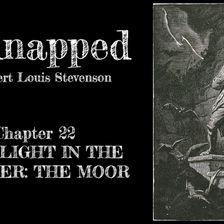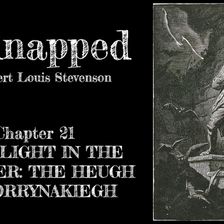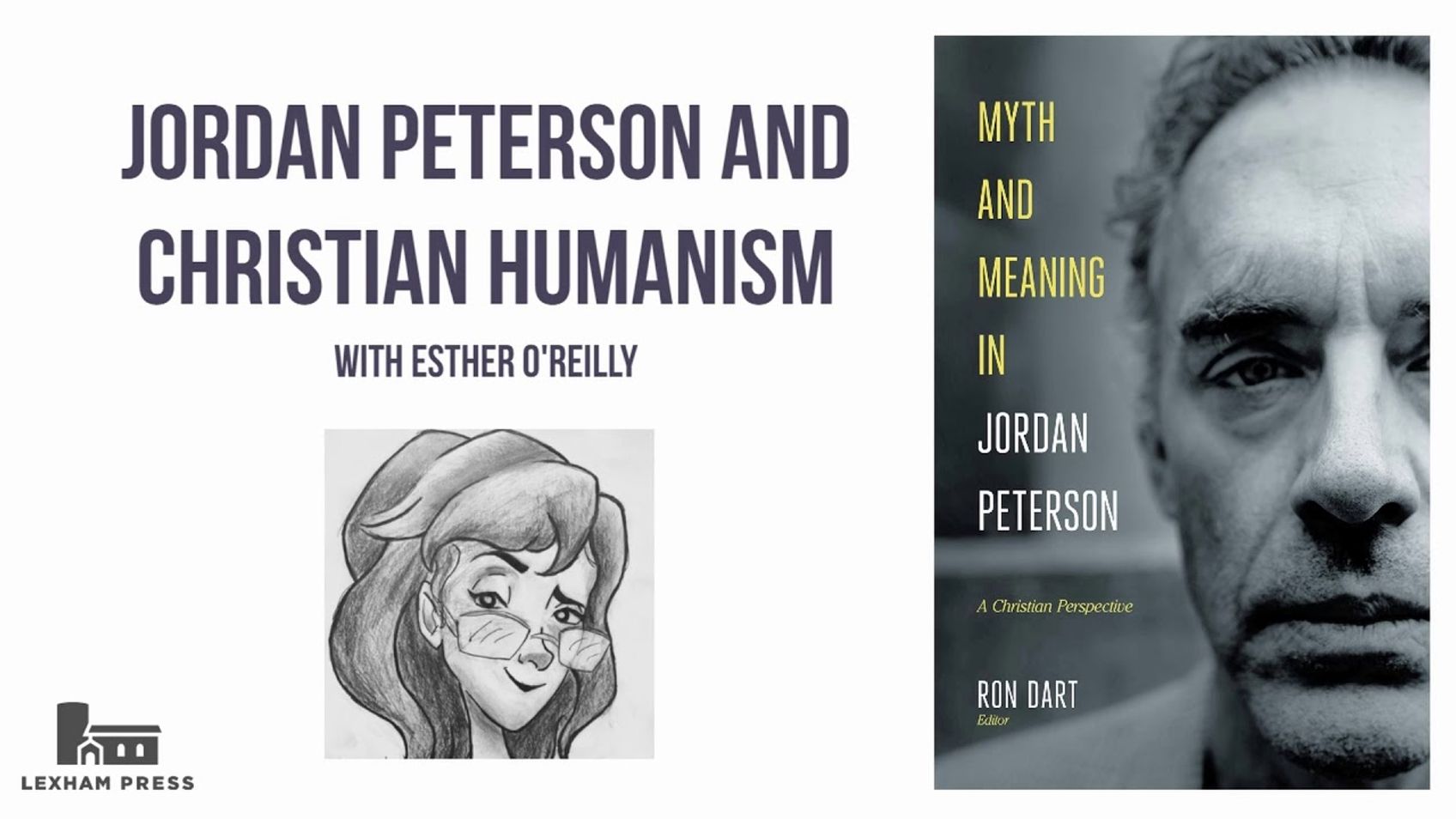Jordan Peterson and Christian Humanism (Esther O'Reilly)
May 28, 2020

Alastair Roberts
Esther O'Reilly joins me to discuss Christian Humanism and her work in the recent Lexham Press volume to which we both contributed a chapter, 'Myth and Meaning in Jordan Peterson': https://lexhampress.com/product/183926/myth-and-meaning-in-jordan-peterson-a-christian-perspective.
This video is sponsored by Lexham Press: https://lexhampress.com/.
More From Alastair Roberts

Kidnapped—Chapter 23: Cluny's Cage
Alastair Roberts
May 28, 2020
For the Easter season, I am posting some rather different things on this channel, in addition to my regular output, as a little gift to my followers a

Kidnapped—Chapter 24: The Flight In The Heather: The Quarrel
Alastair Roberts
May 28, 2020
For the Easter season, I am posting some rather different things on this channel, in addition to my regular output, as a little gift to my followers a

May 29th: Deuteronomy 30 & Luke 16
Alastair Roberts
May 28, 2020
Circumcising Israel's heart. The Parable of the Unjust Steward and the Rich Man and Lazarus.
Reflections upon the readings from the ACNA Book of Comm

May 28th: Deuteronomy 29 & Luke 15:11-32
Alastair Roberts
May 27, 2020
The Lord's discipline for Israel's education. The Parable of the Lost Son.
Reflections upon the readings from the ACNA Book of Common Prayer (http://

Kidnapped—Chapter 22: The Flight In The Heather: The Moor
Alastair Roberts
May 27, 2020
For the Easter season, I am posting some rather different things on this channel, in addition to my regular output, as a little gift to my followers a

Kidnapped—Chapter 21: The Flight In The Heather: The Heugh Of Corrynakiegh
Alastair Roberts
May 27, 2020
For the Easter season, I am posting some rather different things on this channel, in addition to my regular output, as a little gift to my followers a
More on OpenTheo

The Man on the Middle Cross with Alistair Begg
Life and Books and Everything
November 10, 2025
If you haven’t seen the viral clip, go see it right now. In this episode, Kevin talks to Alistair about the preaching clip he didn’t intend to give, h

What Are Some Good Ways to Start a Conversation About God with Family Members?
#STRask
October 30, 2025
Questions about how to start a conversation about God with non-Christian family members, how to keep from becoming emotional when discussing faith iss

What Do You Think About Churches Advertising on Social Media?
#STRask
January 19, 2026
Questions about whether there’s an issue with churches advertising on social media, whether it’s weird if we pray along with a YouTuber, and whether C

Can Two Logical People Come to Conflicting Conclusions Without Committing a Fallacy?
#STRask
January 8, 2026
Questions about whether two logical people can come to conflicting conclusions on a topic without committing a fallacy, how Greg, as a public figure,

Christmas Cranks and Christmas Blessings with Justin Taylor and Collin Hansen
Life and Books and Everything
December 17, 2025
If you are looking for a podcast where three friends talk about whatever they want to talk about and ramble on about sports, books, and grievances, th

The Making of the American Mind with Matthew Spalding
Life and Books and Everything
February 2, 2026
The United States is unique in how much attention it pays to its founding, its founders, and its founding documents. Arguably, the most famous and mos

Conservatism and Religious Freedom with John Wilsey
Life and Books and Everything
October 27, 2025
What is conservatism? And why does it go hand in hand with religious freedom? How should we think about the American experiment of ordered liberty? Ha

How Do I Determine Which Topics at Work Are Worth Commenting On?
#STRask
January 5, 2026
Questions about how to determine which topics at work are worth commenting on, and a good way to respond when you’re in a group Bible study and hear e

How Can We Know Who Is Teaching the Same Gospel Paul Taught?
#STRask
February 16, 2026
Questions about how we can know who is teaching the same gospel Paul taught, and whether or not Jeremiah 1:5 supports the idea that we pre-existed in

Why Should We Pray If God Already Knows What’s Going to Happen?
#STRask
January 29, 2026
Questions about why we should pray if God already knows what’s going to happen, how the effectiveness of prayer is measured, and whether or not things

How Can I Explain Modesty to My Daughter?
#STRask
November 27, 2025
Questions about how to explain modesty to a nine-year-old in a way that won’t cause shame about her body, and when and how to tell a child about a pre

Why Is It Necessary to Believe Jesus Is God?
#STRask
February 19, 2026
Questions about why it’s necessary to believe Jesus is God, whether belief in the Trinity is required for salvation, and why one has to believe in the

How Do I Reconcile the Image of God as Judge with His Love, Grace, and Kindness?
#STRask
October 20, 2025
Questions about how to reconcile the image of God as a judge with his love, grace, and kindness, why our sins are considered to be sins against God, a

When I Can’t Stop Thinking About Something, Is That God Speaking?
#STRask
December 1, 2025
Questions about whether having a recurring thought is an indication God is speaking to you, what to say to someone who says they sinned because “God t

An Invitation to the 2026 Coram Deo Pastors Conference
Life and Books and Everything
February 18, 2026
"I love being a pastor, and I love pastors, which is why I hope you will consider joining us at the Coram Deo Pastors Conference in 2026." —Kevin DeYo
